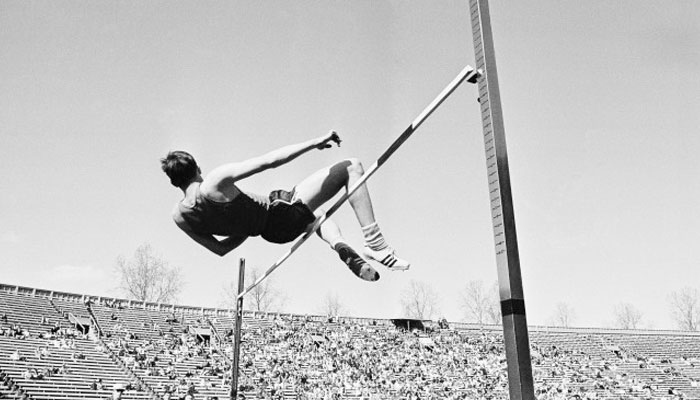
Feb 05, 2016
Working on my method of opening any book at any page and blindly putting your finger on a word, I thought I may as well do it in a book that is all about ideas. I turned Jack Foster’s book on “How to get Ideas” to page 116 and was immediately drawn to a name on the page; Dick Fosbury. (I did cheat here; instead of blindly finger-pointing, I was drawn to the name.)
The section I opened up to was on “breaking the rules” in order to get ideas, and mentions many names other names such as: David Ogilvy, Beethoven and Pasteur.
I was drawn to Fosbury because to me growing up he was the rule, and I became curious as to how it was that he broke the rules? So, I looked him up.
Fosbury was a 21-year-old college student who represented the US in High Jumping at the 1968 Mexico Olympics. His method had been criticised and some questioned its legitimacy. He had an awkward looking jump that lowered his centre of gravity and enabled him to arch his way backwards over the bar and flop shoulder first onto the mat. Hence, the media dubbed the jump, the “Fosbury Flop”.
In the end, there was nothing in the rule book that officials could disqualify him for and Dick Fosbury flopped his way to a gold medal and into the record books.
When the 1972 Olympics came around in Munich, 28 out of the 40 competitors used Fosbury’s technique and he is regarded as one of the most influential athletes ever in track and field.
Innovation occurs when we allow ourselves to step outside of the way it’s done now, break the assumptions that keep us in patterned behaviours and say…”what if?”
How do your Excel skills stack up?
Test NowNext up:
- Custom number formats in Excel
- Configuring an internet facing deployment for Microsoft CRM Server
- Remember Me? In one way I hope not!
- Slugging it out, and the need to bleed
- Service Design in ITIL®
- The magic of scrollbar control in Excel
- Adding videos to your website
- The problem with accepting constructive feedback
- Get a Better View – Through Office Lens
- PowerShell Profiles – Have it Your Way
Previously
- Convert a Column to a Link-to-Item in SharePoint
- Office Politics
- Text to Columns – First Space Only
- Creating an awesome In-Memory Database
- How can we re-habit Change?
- Cyber Resilience – Where do we start?
- Taking Responsibility for Your Own Performance
- Using Text Functions in Excel
- The importance of a break-even point in budgeting
- Your Future in IT – A “Brave New World” for the IT Professional













